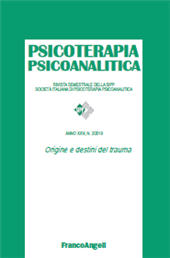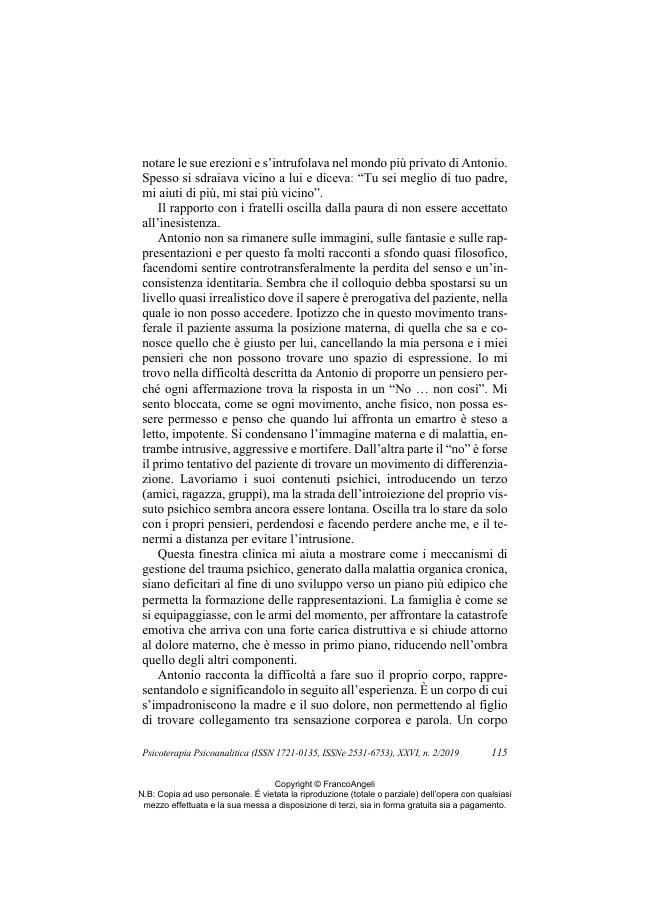Diagnosi di emofilia : il trauma non rappresentabile
109-121 p.
Attraverso quest'articolo l'autore vuole evidenziare le dinamiche psichiche familiari dei pazienti affetti da emofilia ed i loro aspetti traumatici. La malattia organica congenita provoca una profonda angoscia di morte e una ferita narcisistica. Questi aspetti andranno ad incidere sul funzionamento familiare. In particolare si rileverà un attaccamento eccessivo della madre al figlio con la conseguenza di un allontanamento della figura paterna che non riuscirà più a svolgere la sua funzione separante. L'impossibilità di costruire il terzo all'interno del nucleo familiare influenzerà la possibilità del bambino di entrare nella dinamica edipica con il conseguente superamento del tabù dell'incesto. A fronte di questo scenario la nascita è vissuta come un trauma che incide sulla creazione dell'apparato psichico e delle sue funzioni. [Testo dell'editore].
Through this article the author wants to highlight the family psychic dynamics of patients with hemophilia and their traumatic aspects. Congenital Organ Disease causes a deep anxiety of death and a narcissistic wound. These aspects will affect family functions. In particular, an excessive attachment of the mother to the child will result in the displacement of the paternal figure that will no longer be able to perform its separating function. The impossibility of having a third person with-in the family will affect the child's ability to enter into the Oedipal dynamics with the consequence of overcoming theincest taboo. In the face of this scenario birth is experienced as a trauma that affects the creation of the psychic apparatus and its functions. [Publisher's text].
Is part of
Psicoterapia psicoanalitica : 2, 2019-
Articles from the same issue (available individually)
-
Information
ISSN: 2531-6753
KEYWORDS
- Emofilia, trauma, separazione, ferita narcisistica, complesso di Edipo
- Hemophilia, trauma, separation, narcissistic wound, Oedi-pus complex



